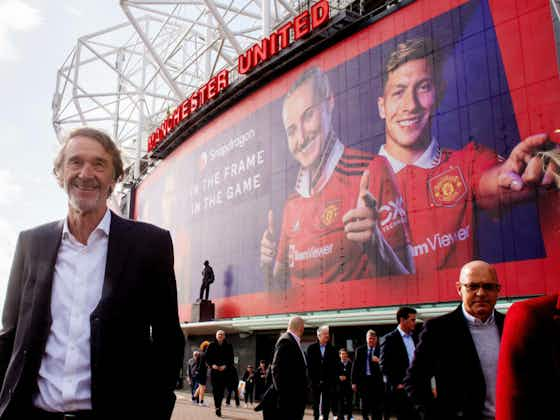EPL Index
·3 June 2024
UEFA Reveal Europa League Decision Over Man United’s Ownership Concerns

In partnership with
Yahoo sportsEPL Index
·3 June 2024

Manchester United fans can breathe a sigh of relief as the club is set to compete in the Europa League next season, despite earlier concerns over ownership conflicts involving Sir Jim Ratcliffe and INEOS, which also owns French club Nice. This decision, confirmed by UEFA, addresses the potential conflict arising from shared ownerships in European competitions—a topic that has stirred significant debate.
Originally, Manchester United’s chance to appear in the Europa League seemed dim after a disappointing eighth-place finish in the Premier League. However, a surprising victory in the FA Cup final against Manchester City ensured their qualification, only for another hurdle to emerge. Sir Jim Ratcliffe, a minority shareholder in United, also owns Nice, which qualified for the Europa League by finishing fifth in Ligue 1. UEFA rules, which prevent clubs under significant common ownership from competing in the same European competition, posed a serious threat to United’s participation.
According to a report from The Times, “UEFA rules decree two teams under the same ownership cannot compete in the same competition, and as Nice had recorded a higher league finish, United were in danger of being relegated to the Conference League.”
The resolution came after INEOS confirmed ongoing discussions with UEFA, leading to a favourable decision allowing both Manchester United and Nice to participate. This decision comes ahead of UEFA’s Club Financial Control Board (CFCB) confirmation expected in the next fortnight.

Photo: IMAGO
While this decision has been made, UEFA has indicated that such leniency might not be extended in the future. The Times’ report noted, “UEFA are expected to inform United and City they will not be allowed such leeway in future instances.” This suggests a tightening of regulations concerning multi-club ownerships, particularly as they affect competition integrity.
Interestingly, Manchester City faced a similar situation with their sister club Girona, who qualified for the Champions League. Despite more substantial ownership stakes (47% by City Football Group in Girona, compared to Ratcliffe’s stakes in United and Nice), both clubs have also been cleared to compete. This parallel raises questions about consistency and the future of club ownership structures in European football.
The potential for stricter regulations was hinted at in a leaked document, suggesting that UEFA is considering tightening the rules governing multi-club ownerships. Such changes could significantly impact how clubs strategize and structure their ownerships and partnerships.
This situation highlights the complex interplay between business interests and sporting integrity in modern football. As clubs increasingly become part of broader entertainment and business conglomerates, the challenges for governing bodies like UEFA in maintaining a level playing field grow more complex.
The ongoing evolution of these regulations will be crucial in shaping the landscape of European football. Clubs may need to reconsider their ownership strategies or face potential exclusions from prestigious competitions—a move that could redefine power dynamics in the sport.
As UEFA mulls over these critical decisions, the football world watches eagerly, knowing that the outcome could herald a new era of governance in football. The precedent set by Manchester United’s case could become a cornerstone in the ongoing debate over how business and sport intersect on the European stage.


Live




Live




Live




Live




Live

















































